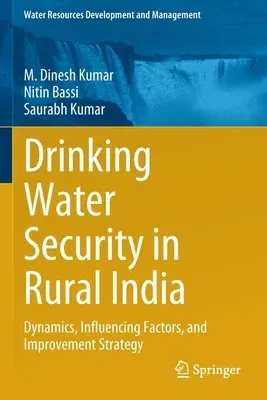M Dinesh Kumar
(Author)Drinking Water Security in Rural India: Dynamics, Influencing Factors, and Improvement Strategy (2022)Paperback - 2022, 9 February 2023

Qty
1
Turbo
Ships in 2 - 3 days
In Stock
Free Delivery
Cash on Delivery
15 Days
Free Returns
Secure Checkout

Part of Series
Water Resources Development and Management
Print Length
192 pages
Language
English
Publisher
Springer
Date Published
9 Feb 2023
ISBN-10
9811692009
ISBN-13
9789811692000
Description
Product Details
Book Edition:
2022
Book Format:
Paperback
Country of Origin:
NL
Date Published:
9 February 2023
Dimensions:
23.39 x
15.6 x
1.17 cm
Genre:
Ecology
ISBN-10:
9811692009
ISBN-13:
9789811692000
Language:
English
Location:
Singapore
Pages:
192
Publisher:
Weight:
308.44 gm